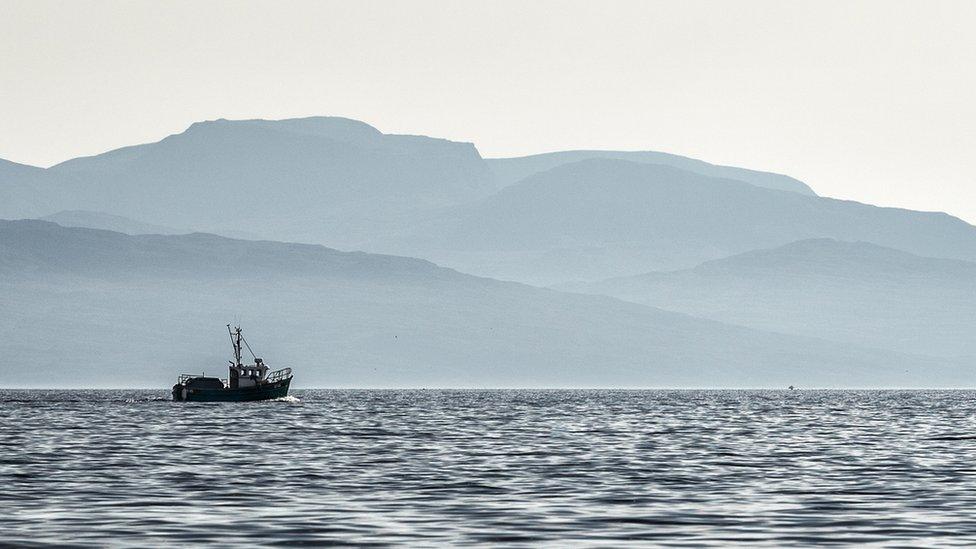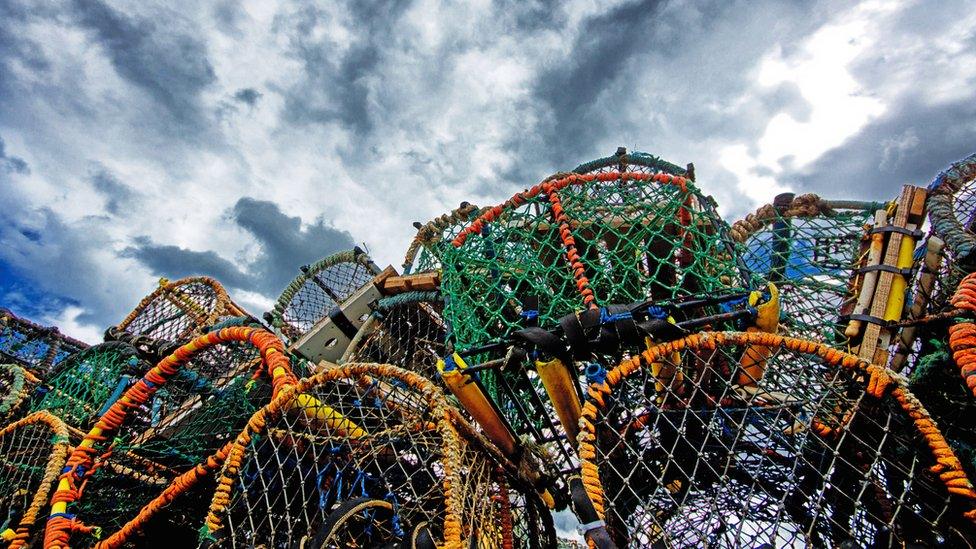Scottish government wins appeal on creel fishing ruling
- Published

Creel fishermen took the Scottish government to court over a pilot fisheries project
The Scottish government has won an appeal against a ruling requiring it to reconsider the way fisheries should be managed in the seas off Skye.
The Scottish Creel Fishermen's Federation (SCFF) wants a pilot project to be run which would see no trawling and dredging in some inshore areas.
The SCFF went to the Court of Session after the Scottish government turned down the proposal.
The government appealed against the judicial review the SCFF had won.
In the appeal, lawyers for Scottish ministers addressed Lord Carloway, Lord Turnbull and Lord Pentland.
They told the Inner House judges that another judge, Lady Poole, had misinterpreted the law and Marine Scotland, a directorate of the Scottish government, had acted correctly in how it dealt with the proposal.
In a written judgement issued by the court on Thursday, the court upheld the submissions made to it by the Scottish ministers and overturned Lady Poole's decision.
In January, the Court of Session ruled that the creel fishermen's proposal was turned down by ministers solely because of the strength of opposition.
Lady Poole said the SCFF's proposal - to separate mobile and static fishing in Skye's Inner Sound as part of a trial - had not been fairly considered before being rejected.
Mobile fishing, through trawling and dredging, can often come into conflict with static methods.
Creel fishermen - who lay their pots on the seabed before returning days later to empty them - say thousands of pounds worth of gear can be lost when a fishing boat drags its nets through an area.
The proposal was to designate some areas of the Inner Sound to static fishing while others could be used by the mobile fleet.
Acted unreasonably
A consultation, launched in 2017, invited fisheries management proposals for the seas around Scotland which would be judged against five criteria, including national and international obligations and the impact on quotas.
But Lady Poole ruled that the SCFF proposal for the Inner Sound was not judged on these criteria but simply on the strength of opposition.
Lawyers for the SCFF told Lady Poole that Scottish government directorate Marine Scotland acted unreasonably when it rejected its plan.
The organisation claimed objections from trawler operators had outweighed "published criteria for assessing pilot proposals set out in the government's own guidance".
SCFF lawyers claimed the Scottish government's guidance stated that local community groups could put forward a pilot proposal which could be approved.
They said approval could be granted if such schemes provided firm proof that management of fishing stocks could be maintained and improved.
Related topics
- Published11 January 2021
